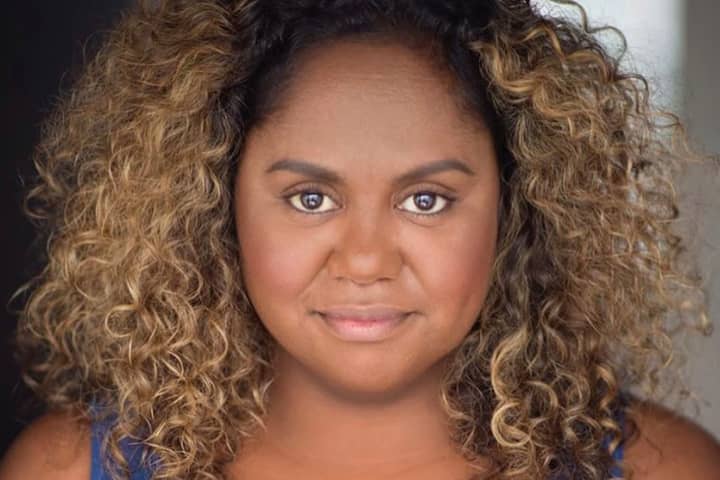From pitching his writing to George Lucas as a child to sharing his words with MTC audiences as part of the 2021 Cybec Electric play readings, Benjamin Nichol’s writing journey is an adventure!
What made you start writing for the stage?
My mother will testify to my love of dressing up and ‘make believe’ from before the moment I could speak. There are drawers in my childhood bedroom filled with short stories and scripts for mini-performances, including a Star Wars spin-off proposal that I hand wrote and sent to George Lucas at age seven! Many of these early drafts took the form of shamelessly plagiarising whatever I was watching or reading at the time (hot obsessions besides Star Wars included: The Wizard of Oz, Mary Poppins, Old Testament biblical stories and The Lord of the Rings).
Years later, as an adult, I studied acting at the VCA – a practise I adored and still do. However, working within the industry I quickly found myself missing the liberty and autonomy of vision offered by the craft of writing for performance. When you act you help to populate and colour an already existing world; but when you write, you birth the world, its symbols, its rules, its politics and its inhabitants. Whilst it can be overwhelming, it offers a rich and unparalleled sense of creative satisfaction that nothing else comes close to rivalling.
Can you tell us about your Cybec Electric play, Croydon?
Croydon is a study of love and of loneliness; of the evolving nature of families; of the benchmarks of life and the inevitability of death. It examines the home-life of a middle-aged woman, still totally dependent upon her elderly mother, as she navigates her faith, sanity, bodily autonomy and familial status, whilst deliberately avoiding the changing and terrifying world outside the house she has refused to leave in years.
Why this play and why now?
I spent much of this past year of isolation living with my parents (whom I adore and get along with exceptionally well!). Throughout this spell, I found myself reflecting upon the complicated and changing nature of the family unit and the impact participating in the wider community has upon our health, global perspective and sense of self. I was curious to explore the long-term impact of what happens when we choose to totally dissociate from the pain of our surroundings, when we refuse to ‘grow up’ and take responsibility for our actions, and when we aren’t equipped to care for the loved ones we feel obligated to look after.
Can you tell us more about your writing process, where you write and why?
When I’m working I am highly conscious of the sorts of literature, media and film I am consuming – an old writing teacher drilled into me that ‘everything we consume affects our subconscious in strange and surprising ways’ and it’s stayed with me ever since.
‘I think people often misunderstand how ‘not writing’ can actually be an incredibly important part of the writing process.’
I think people often misunderstand how ‘not writing’ can actually be an incredibly important part of the writing process. I tend to write in intense bursts, often smashing out an entire draft in a night. It’s pretty rare that I will ever begin writing before dinner, and I will often work until four or five in the morning (I know, I’m terrible!). Surrounding these intense nights of poor self-care are often weeks of not writing at all, but instead quietly obsessing over the work, thinking through its motives, its politics, its characters and its alternative journeys.
I am also a keen runner and I do some of my best creative thinking when I am pushing my body to its limit… something about exhausting myself physically forces me away from rational thinking and leads me to discover options that take the work in exciting and unexpected directions.
How do you know when an idea should turn into a play?
For me, it always starts with character. Plot per se doesn’t particularly interest me, but a study of people, their resilience, and their attempts to do better (while often failing in the process) strikes an intense emotional chord within me.
When a character strikes me, I write an abundance of scenes and monologues from their perspective until I have an extensive understanding of exactly who they are. Usually, they start out as someone I know (or a version of myself), before I begin to tweak their features and backstories until they are distanced enough from their inception point that they could never objectively be recognised. I consider this disguise a crucial part of maintaining an ethical creative practise.
‘Most of this content ends up being sub-par and totally unusable, but what it leaves me with is a rich world populated by exciting and contradictory characters, all of which forms a juicy starting point for a new play!’
I will then repeat this process with multiple characters, finding people who will bring out interesting and conflicting responses in one another as I force them into scenes together. Most of this content ends up being sub-par and totally unusable, but what it leaves me with is a rich world populated by exciting and contradictory characters, all of which forms a juicy starting point for a new play!
What excites you most about your participation in Cybec Electric 2021?
Working with other writers! Working with actors! Having social, supported and communal development time! I am a ride-or-die extrovert, yet the act of writing can fundamentally be very lonely. So anything that socialises the task of playwriting is an invaluable opportunity for me to challenge, reinvigorate and ultimately enjoy my creative process on a deeper level.
The Cybec Electric play readings run from 19 to 20 February 2021 at Southbank Theatre.
Cybec Electric forms part of MTC’s ongoing commitment to the development of new Australian writing, and is only possible due to the support of the late Dr Roger Riordan AM and The Cybec Foundation.
Published on 16 February 2021





